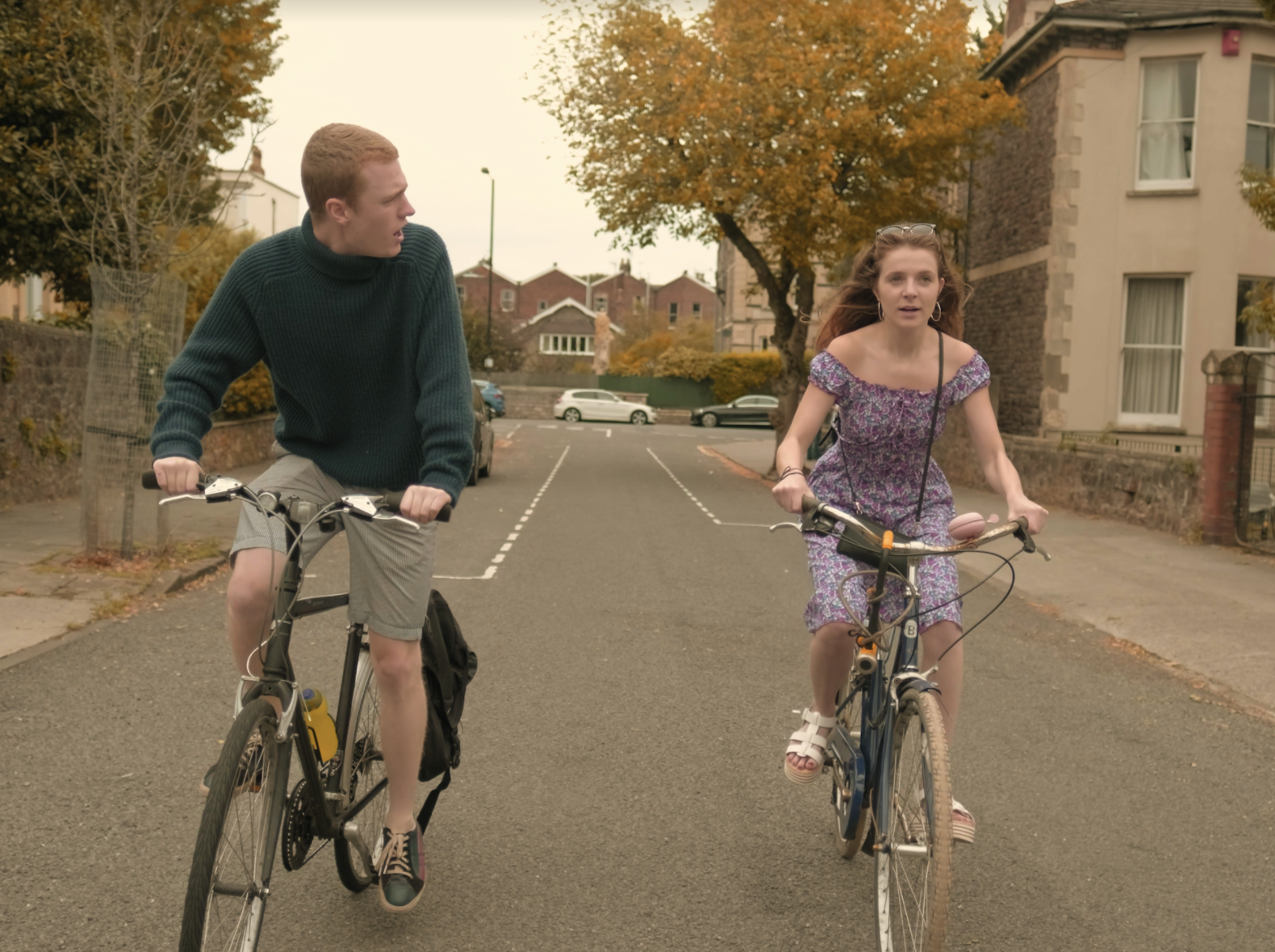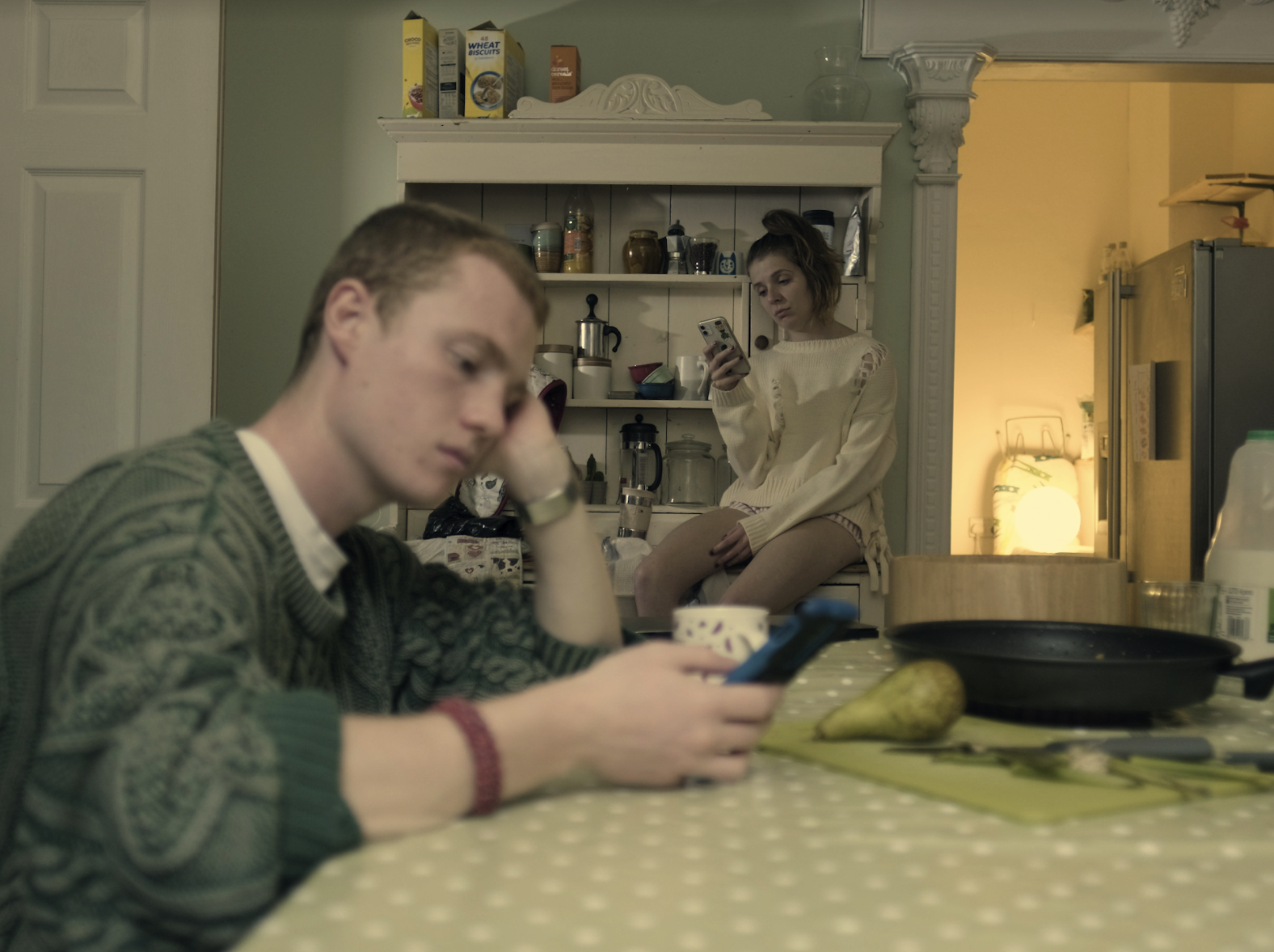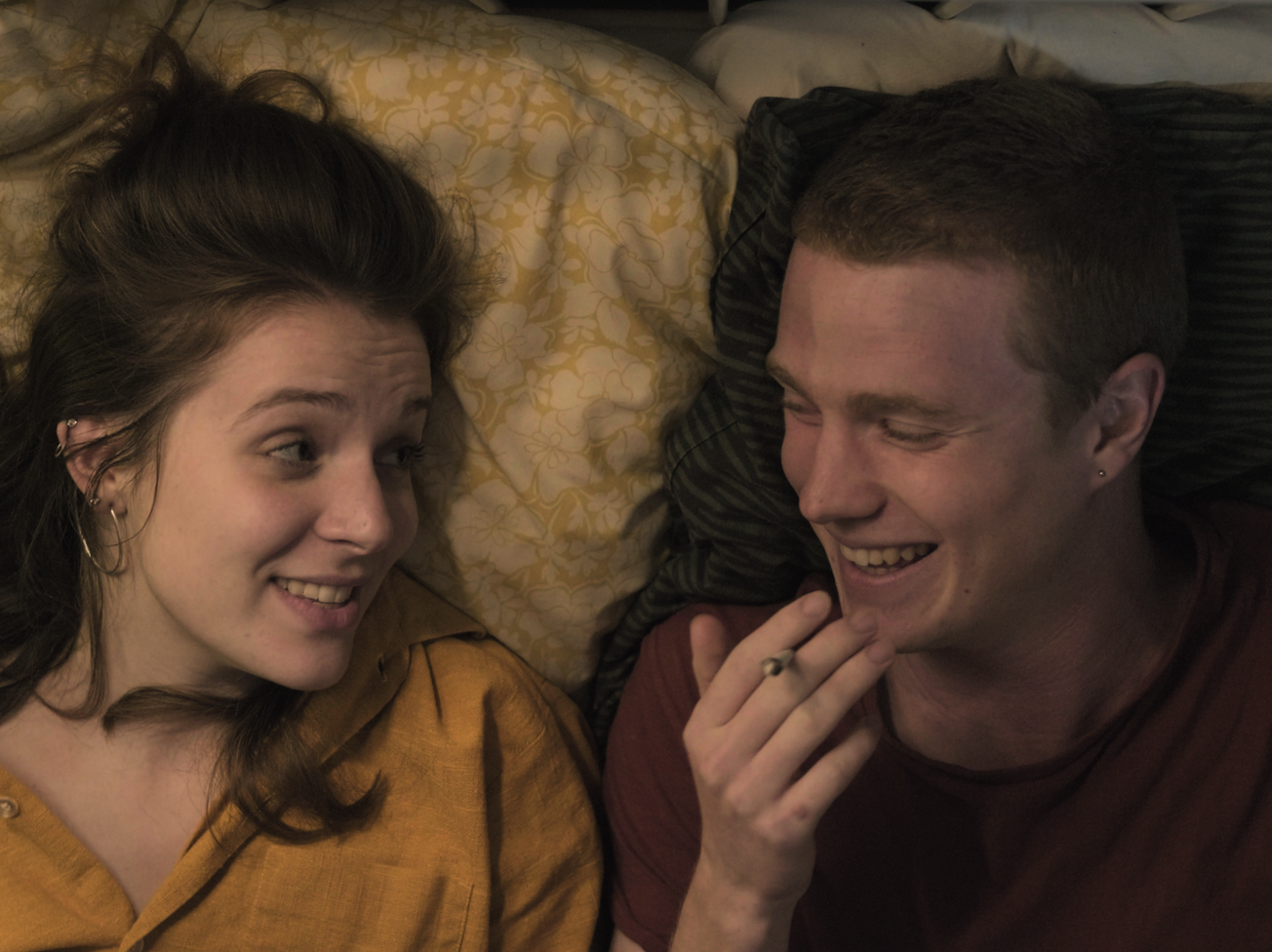By Alice O'Rorke, Second Year, English Literature
It's an odd time. Our movements are limited like our social circles and boredom has become like an old friend. Mancala breaks through the stasis and reminds us of the beauty of stripping back to a room, a board game, and a good old chat about life.
This short film follows two housemates — Marie and Theo — whose contrasting personalities are isolated together in their university house. They start of distant but are thrown together without the usual buffers of other people around them. With little else to do, Marie suggests they play the board game Mancala. It is through this that their dissonant personalities are brought together as they overcome their differences and tune into one another’s personal psychologies.

Theo (played wonderfully by Christian Leith), is kind yet reserved, sheltered in his own small world that has progressed from small town to university. He plans to move directly to London once he finishes his degree. He is in a long-term relationship with his childhood sweetheart, studies bio-chem and talks of being frugal.
Otilia Royer’s character, on the other hand, is bold, passionate and spontaneous. Marie talks about travel. She is French, studies Music and Philosophy, smokes, dates and says what she feels. She is completely vivacious.
The characters learn to adapt and understand each other’s mindsets, finding a middle ground between their two contrasting personalities. As the film develops, Theo loosens up, exploring his previously unspoken thoughts, whilst Marie considers breaking her spontaneous nature to plan out a future. Their opposite psychologies allow them to bring out deeper questions within each other.
Abraham Dein’s directing is gorgeous. He includes wonderful montage moments that break up still moments of interaction between the characters and demonstrate the passing of time. He also plays with the use of phones. We see that, as the characters' phones become a secondary prop to the board game, their interactions with each other and moments of bonding increase. Over the past year, with our screen time having doubled and we're increasingly glued to our devices in a haze of boredom, it is really striking to see that only when this is stripped back, do we see who the characters really are.

This short film encapsulates what a weird place University really is; it acts as a stop-gap for what is to come afterwards. It is a time where everyone is continually talking and planning out their futures, their careers, their relationships. A time when information is constantly being thrown in all directions.
In conversation with MinuteMade student film festival
University of Bristol alum Laura Marcus wins Best Writer at the BFI Future Film Festival
The fact that these characters are being given space to process their own futures and contemplate what they want from life is calming. They are given time to breathe amongst the whirl of thought that the three or so years entails: given space to just enjoy being present with one another.
This is a gorgeous portrayal of finding friendship where you least expect it. Despite the fact that these two characters are polar opposites, it feels that they are meant to be friends. With all the obstacles and chaos of life stripped away, their friendship blooms into something comforting and cosy.
Whether you crave deeper psychological exploration, or just a light 20-minute watch, Mancala will resonate with any university student. Maybe it’ll encourage you to pick up ‘Mancala’, or another boardgame of the sort and have a good chat with someone new.
Featured: Mancala, Abraham Dein
Will you be watching Mancala?









